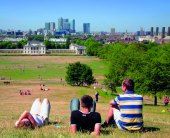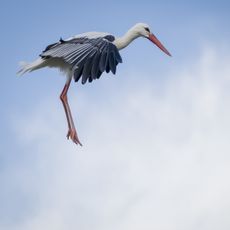Campaigners say NO to Greenwich equestrian site
A campaign has been launched in protest at the proposed use of a World Heritage Site in Greenwich for the Olympic equestrian events in 2012


A high-profile crusade has been launched to stop the Olympic equestrian events taking place at Greenwich in 2012. No to Greenwich Park Olympic Equestrian Events (NOGOE) has the patronage of historian David Starkey, who says: ‘To host equestrian events at a UNESCO World Heritage Site is a monstrous proposal.’
NOGOE accuses the London Organising Committee of the Olympic Games (LOCOG) of being ‘inconsistent and inept’ and says that to close Greenwich Park for six to eight weeks while the cross-country course and a 23,000-seat arena are being built is ‘socially unjust in a relatively deprived inner-city area’ and would cost £17 million.
It says the original planning document was to an incorrect scale and the LOCOG’s desire for an iconic location overrode practicality.
The campaigners also raise concerns about damage to the turf, to ancient trees and to a Roman archaeological site, and points out that closing 44 roads and 27 bus routes would lead to a disproportionate amount of disruption.
NOGOE, whose patrons include actress Margaret Tyzack and singer Sir Willard White, has commandeered some serious legal brains, including Sir Frank Berman, former lawyer for the Foreign Office, and has written to the Princess Royal, an International Olympic Committee member, asking her to intervene.
Her daughter, Zara Phillips, has been quoted this week as saying that the Olympic equestrian events should relocate to Windsor, a proven competition site that is hosting the European Jumping and Dressage Championships in August.
Greenwich was chosen to fulfil Olympic bid criteria of a compact Games with sports taking place within 30 minutes of the central media office, and it will host the riding element of the modern pentathlon, whose five disciplines all take place on one day in London.
Sign up for the Country Life Newsletter
Exquisite houses, the beauty of Nature, and how to get the most from your life, straight to your inbox.
Last year, Greenwich passed a Government-sponsored KPMG audit, but criticism about its lack of size and physical legacy rumbles on, and LOCOG has admitted to having been on the back foot PR-wise since the beginning, allowing all sorts of myths to build up in locals’ minds, including that the cross-country competition was like the Grand National.
Sue Benson, the cross-country-course designer, has borne the brunt of the complaints. She says: ‘Obviously residents are anxious, but it’s probably six to eight weeks out of their whole lives, all for something the nation is supposedly proud of. We’re not digging up roads or taking down trees. I’m struggling with the negativity. I’d just like people to get behind it to ensure it’s a success.’
Tim Hadaway, LOCOG’s newly appointed equestrian competition manager, has spent many hours with local journalists, environmentalists and arboreaculturists. ‘Nothing is being done without the approval of English Heritage, Royal Parks and Natural England,’ he confirms.
The equestrian world has a good record of ground expertise—many major events are held on historic sites, including the World Heritage Site at Blenheim Palace—and the cross-country phase, which is NOGOE’s main bugbear, is only for one day out of the whole Games.
Princess Haya, president of the International Equestrian Federation (FEI), has said that British negativity about Greenwich is damaging the sport, and she has highlighted the risk to equestrianism of staying within the Olympic movement.
The FEI was quick to respond to NOGOE, saying: ‘‘We would like to reiterate our confidence in LOCOG to ensure that environmental considerations and the local community are placed at the top of the agenda.’
LOCOG’s plans for Greenwich have to pass planning permission, and they must undergo a programme of local community consultation plus environmental impact assessment this year.
To read more about the NOCOE's concerns, see Town and Country in this week's issue of Country Life (March 11).
To comment on this article, use the comment box below, or email us at clonews@ipcmedia.com. Read more about the countryside.
Country Life is unlike any other magazine: the only glossy weekly on the newsstand and the only magazine that has been guest-edited by HRH The King not once, but twice. It is a celebration of modern rural life and all its diverse joys and pleasures — that was first published in Queen Victoria's Diamond Jubilee year. Our eclectic mixture of witty and informative content — from the most up-to-date property news and commentary and a coveted glimpse inside some of the UK's best houses and gardens, to gardening, the arts and interior design, written by experts in their field — still cannot be found in print or online, anywhere else.
-
 A well-connected rural playground with 23 acres on the edge of the South Downs National Park
A well-connected rural playground with 23 acres on the edge of the South Downs National ParkOld House Farm is an impressive family home with a wealth of amenities that would inspire any rural passion.
By Arabella Youens Published
-
 The UK gets its first ‘European stork village’ — and it's in West Sussex
The UK gets its first ‘European stork village’ — and it's in West SussexAlthough the mortality rate among white storks can be up to 90%, the future looks rosy for breeding pairs in southern England.
By Rosie Paterson Published
